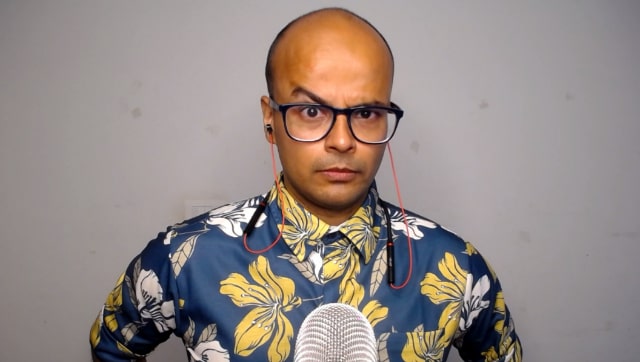What happens when a stand-up comedian sits down to write a non-fiction book? Is the material completely new, or just old wine in a new bottle? Do the jokes land differently, or not at all? How difficult is it to elicit laughter without instant feedback from a live audience? Read stand-up comedian Sorabh Pant ’s book Vote for Pant (2022), published by Rupa, to find your own answers to these questions. The kind of humour that makes one person chuckle can make another person angry, a third fall asleep, and a fourth wonder if they heard it right. I found the book funny and enjoyable mainly because of the author’s ability to laugh at himself. The self-deprecatory approach, as Pant confesses, works quite well in a political environment wherein some audiences have “extra time to file suits on behalf of people who were not offended in the first place”. As long as you crack jokes about yourself, you are safe.
'From the veracity and tenacity of WhatsApp forwards to the nepotism in Bollywood; from China's dadagiri to the Indian media's chamchagiri—he has a witty take to offer on all of the above, and more.' Check out Prithvi Vatsalya's review of @hankypant's #VoteForPantButDont
— Rupa Publications (@Rupa_Books) June 2, 2022
(1/2)
He writes, “In December 2019, I received 19 death threats for a ‘political’ joke I had made in 2017. It shows how long it takes for some people to understand – or in this case completely misunderstand – a joke.” The people threatening him specified how they would kill him. One of them said, “Saale tera sarr kaat ke football khelega main (I will cut off your head and play football with it).” Pant was horrified and amused. The second reaction came after a while. When the humour in the situation dawned on him, Pant decided to weave it into the book. He points out that his head is “nicely shaped to be a football” and that “the lack of hair ensures there’s a consistent surface area” barring his nose and lips. If this sounds grotesque, it is only the tip of the iceberg. He is far more graphic while talking about his football-like head. The sad part is that Pant felt compelled to tone down political humour for the safety of his family. Even this is turned into a joke. “I have two kids, one wife and a hefty EMI to pay. I have to remain alive and I have to pay off my loan,” he writes, soon before launching into a quick jibe at the publishing industry. “Given books barely make money, this will help pay about 72 per cent of one month’s EMI.” It seems that people working at Rupa do have a sense of humour, so this line was not chopped off. Of course, Pant would love to get a bigger advance. If it exceeds what author Amish Tripathi is able to command, that would be even better. If you think that the book might be too bland considering that Pant does not want to take any panga with politicians, let me clarify. He is critical without being vicious. He is skilful and tactical, driving home the point without jeopardizing his own well-being or career prospects. I tend to view this as a smart rather than cowardly approach. Some comedians deliver stinging satire, others prefer a gentler tone. Like comedians, audiences too have their own preferences.


)
)
)
)
)
)
)
)
)



